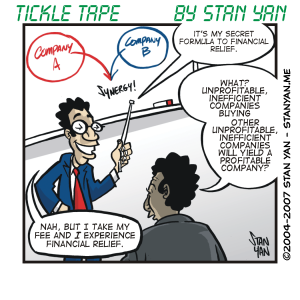Why do so many traders abandon their trading plan? Is it their personality, an inherent pitfall of the trading profession, or temporary insanity? A host of factors may contribute to a lack of discipline. Depending on your personality, background, training, and experience with the markets, you may have trouble reigning in your tendency to act on impulse.
For some people, impulsivity is in their nature. They have trouble focusing their attention. They are easily bored. Seeking out quick thrills relieves the tedium of life. For others, impulsivity is related to emotionality. Some people have so much trouble controlling their emotions that they react impulsively out of frustration. Minor setbacks are inevitable in the trading arena. When the extremely emotional trader encounters one of these setbacks, he or she becomes overly agitated and may close a position early, or in a fit of confusion, make a major trading blunder that can only be remedied by closing the position.
That said, any trader can act impulsively at times. There are many situational factors that contribute to impulsivity. Research has shown, for example, that when people are tired, they have difficulty focusing their attention. As much as part of your conscious mind cares about sticking with your trading plan, your unconscious mind thinks, “Who cares? I want to take a break.” Psychological resources are limited. When you push yourself to the limits, you will have trouble focusing on your ongoing experience, concentrating on your trading plan, and sticking to it.
Other people may be impulsive because they lack experience with the markets. You can’t expect to stick with a trading plan when you are uncertain. If you lack experience with the markets, you’ll feel a lack of confidence and uneasiness. If you don’t trust your intuition and if you have wavering trading skills, you’ll have difficulty risking money and truly believing that your trading plan will produce a profit.
Trading plans must be clearly defined and easy to follow. When you have an incomplete trading plan in which important aspects are left unclear, you will have trouble following it. A trading plan should consist of clearly defined entrance and exit strategies. Signals that indicate how the trade is going are also important. Don’t underestimate the importance of clearly mapping out a trading plan. You can’t stick with a trading plan that you can’t follow.
The winning trader is a disciplined trader. Disciplined traders stick with trading plans. They don’t act on impulse. It is essential that you identify the reasons you are trading impulsivity. It could be your personality or it may just be situational, but whatever it is, you must gain awareness of these factors and work around them. If you can control the urge to act on impulse, you’ll trade more profitably.


